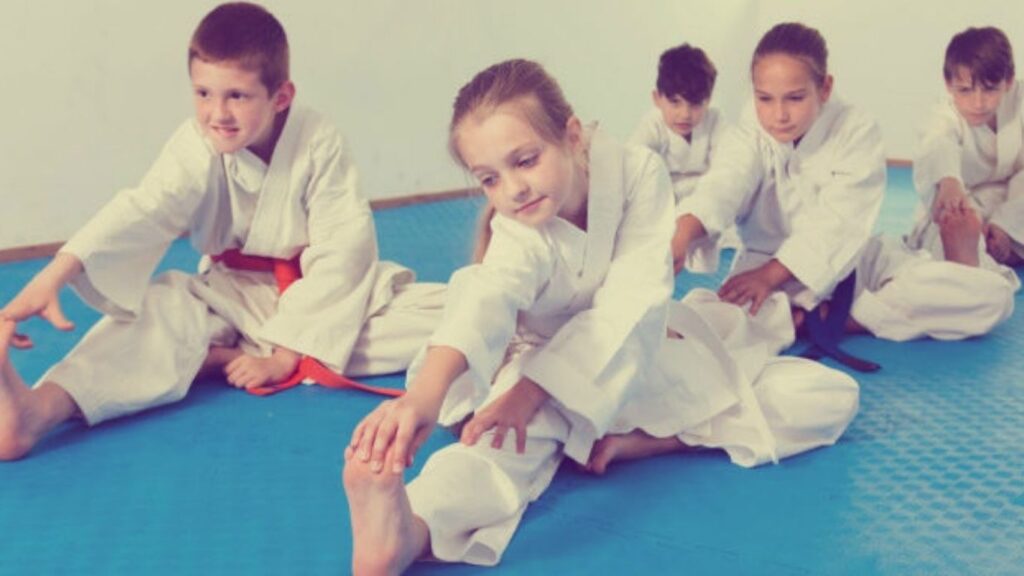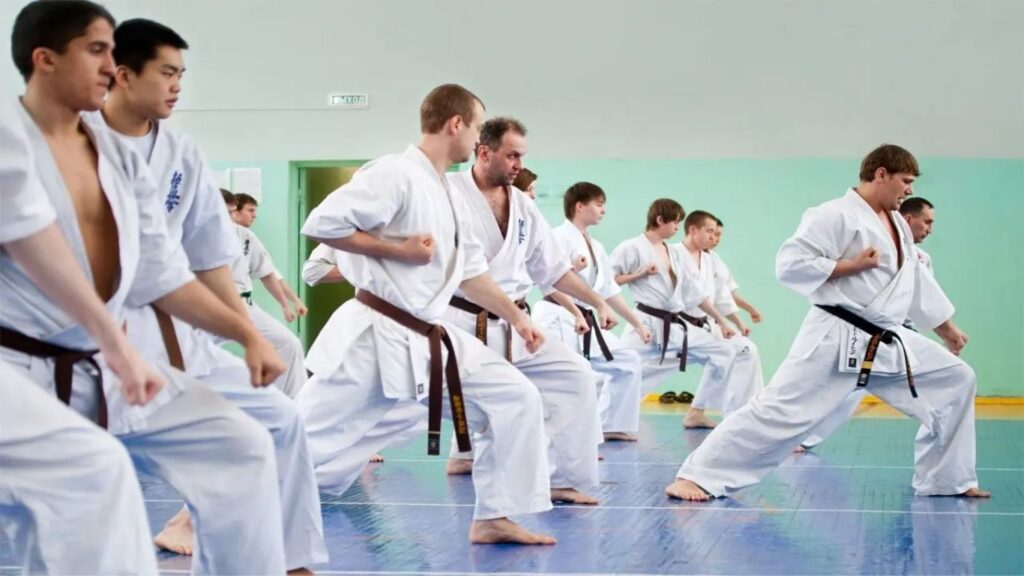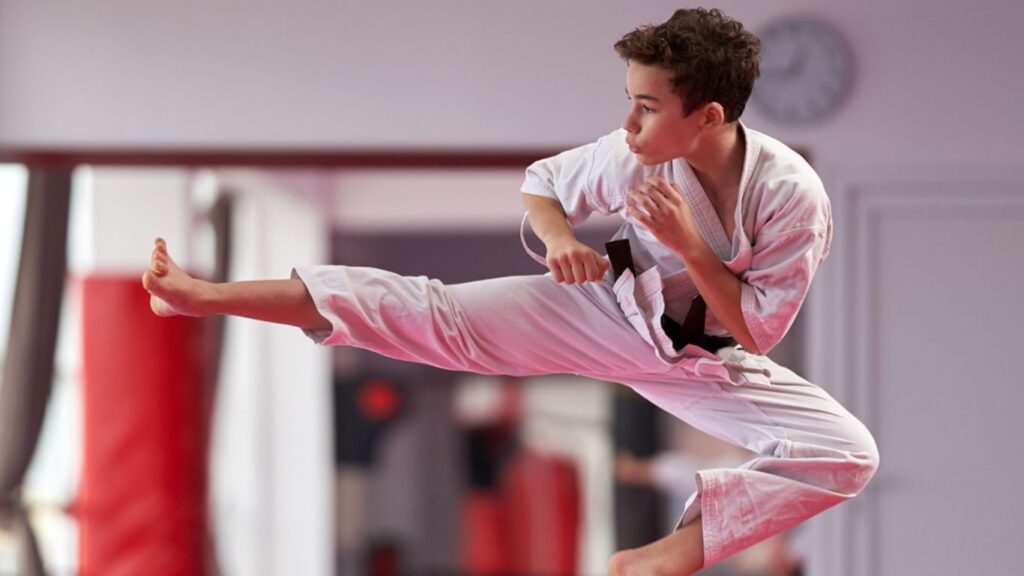In a world filled with stress, distractions, and a constant hustle, achieving holistic well-being is often a challenge. It’s not uncommon to feel physically exhausted and mentally drained. In such times, the ancient martial art of Karate emerges as a beacon of hope, offering a holistic approach to health that addresses the mind-body connection. Karate, deeply rooted in both physical discipline and mental fortitude, provides a unique path to achieve balance and overall well-being. In this article, we will delve into the fascinating world of Karate and explore how it fosters a profound mind-body connection, making it a holistic approach to health that has stood the test of time.
The Foundations of Karate
Karate, which translates to “empty hand” in Japanese, originated on the Ryukyu Islands (now part of Japan) and has a history that spans several centuries. It is a martial art known for its emphasis on striking techniques, defensive maneuvers, and kata (pre-arranged forms). While many people associate Karate primarily with physical combat, its true essence lies in the harmonious union of the mind and body.
Physical Benefits
Strength and Conditioning
One of the most immediate and visible physical benefits of practicing Karate is the enhancement of strength and conditioning. Karatekas (practitioners) undergo rigorous training that includes various exercises such as push-ups, sit-ups, and body conditioning techniques that strengthen muscles and improve endurance. The movements in Karate are designed to engage the core, legs, and upper body, resulting in a well-rounded improvement in physical strength.
Specific Benefits of Karate Training:
- Cardiovascular Health: Karate training involves high-intensity workouts that improve cardiovascular fitness, leading to a healthier heart and better overall stamina.
- Muscle Endurance: The repetitive motions and stances in Karate build muscular endurance, enabling practitioners to perform at a high level for an extended period.
- Flexibility: The practice of kata and stances in Karate requires a wide range of motion, enhancing flexibility and reducing the risk of injury.
- Balance and Coordination: Karate focuses on precise, controlled movements, which significantly improve balance and coordination.
Self-Defense and Physical Resilience
Karate is not just about physical fitness; it’s also about equipping individuals with the skills to defend themselves effectively. While self-defense techniques are integral to Karate, they also enhance physical resilience, helping practitioners feel safer in their everyday lives.

Mental Benefits
Focus and Concentration
Karate is often described as a moving meditation. Practitioners must maintain unwavering focus and concentration during training, as even the slightest lapse can affect the outcome. This heightened focus transcends the dojo (training hall) and becomes a valuable life skill.
Karate’s Impact on Concentration:
- Mindfulness: Karatekas learn to be fully present in the moment, honing their mindfulness skills and reducing distractions.
- Problem Solving: The ability to adapt and respond quickly in sparring or self-defense scenarios sharpens the mind’s problem-solving abilities.
- Stress Reduction: The meditative aspects of Karate reduce stress and anxiety, promoting mental clarity.
Discipline and Self-Control
In Karate, discipline is not a choice; it is a fundamental requirement. Practitioners must adhere to a strict code of conduct that emphasizes respect, humility, and self-control. These principles extend to daily life, fostering better decision-making and emotional regulation.
The Correlation Between Karate and Self-Discipline:
- Improved Decision-Making: Karatekas are more likely to make sound decisions, as they are trained to think before acting.
- Emotional Resilience: Self-control and emotional resilience are strengthened, allowing individuals to respond to challenges with composure.
- Conflict Resolution: The principles of respect and humility learned in Karate can be applied to peacefully resolve conflicts.
Confidence and Mental Resilience
As individuals progress in their Karate training, they gain a sense of accomplishment and self-assurance. Facing challenges, overcoming failures, and achieving goals within the martial art instill a deep sense of confidence and mental resilience.
Karate’s Role in Building Confidence:
- Goal Setting: Karate set and achieve goals, which can be translated into various aspects of life, boosting self-esteem.
- Overcoming Failure: Learning to cope with failure and setbacks builds mental resilience.
- Positive Self-Image: The physical and mental improvements brought about by Karate contribute to a positive self-image.

The Mind-Body Connection in Practice
The synergy between the physical and mental aspects of Karate is best exemplified in the practice of kata. Kata are choreographed patterns of movements that simulate a fight against multiple imaginary opponents. They are a central element of traditional Karate and encapsulate the holistic approach to health that this martial art represents.
Kata and the Mind-Body Connection:
- Physical Expression: Kata require precision and fluidity, demanding a deep connection between the body and mind.
- Mental Visualization: Practitioners mentally visualize their opponents during kata, enhancing mental clarity and focus.
- Breath Control: Controlling the breath during kata promotes relaxation, mindfulness, and inner strength.
The Meditative Elements of Karate
Karate is often referred to as a moving meditation due to its strong emphasis on deep breathing and mindfulness. The meditative aspects of Karate foster a sense of inner calm and mental alertness that extend beyond the dojo.
Meditation and Mental Well-Being:
- Stress Reduction: Deep, controlled breathing in Karate practice helps reduce stress and anxiety.
- Enhanced Awareness: Practicing mindfulness in Karate leads to improved self-awareness and self-control.
- Inner Peace: The meditative qualities of Karate enable individuals to find a sense of inner peace and tranquility.
Realizing the Holistic Approach
For many practitioners, Karate transcends the boundaries of physical exercise and mental training. It becomes a way of life, shaping the choices they make and the values they uphold. The holistic approach to health that Karate offers is evident in the balanced development of the mind and body, ultimately leading to improved overall well-being.
Implementing Karate’s Holistic Approach in Daily Life:
- Balancing Work and Life: Karate helps individuals strike a balance between their personal and professional lives by promoting discipline and time management.
- Relationships and Interactions: The principles of respect and humility in Karate lead to healthier, more respectful relationships.
- Resilience in Adversity: The mental fortitude gained through Karate enables individuals to better cope with life’s challenges.

Conclusion
Karate is more than a martial art; it is a way to achieve holistic well-being. Through its physical conditioning, self-defense techniques, and mental training, Karate fosters a profound mind-body connection. The mental benefits of focus, discipline, and self-confidence complement the physical improvements in strength and resilience. Together, these elements make Karate a holistic approach to health that transcends the dojo and extends into all aspects of life.
As you embark on your journey in Karate or deepen your understanding of this ancient martial art, remember that the mind-body connection is at the heart of its teachings. Karate empowers you to cultivate both physical strength and mental alertness, equipping you to lead a healthier, more balanced life.
Also read: The Evolution of Cardio Workouts: From Jump Ropes to High-Intensity Interval Training (HIIT)
